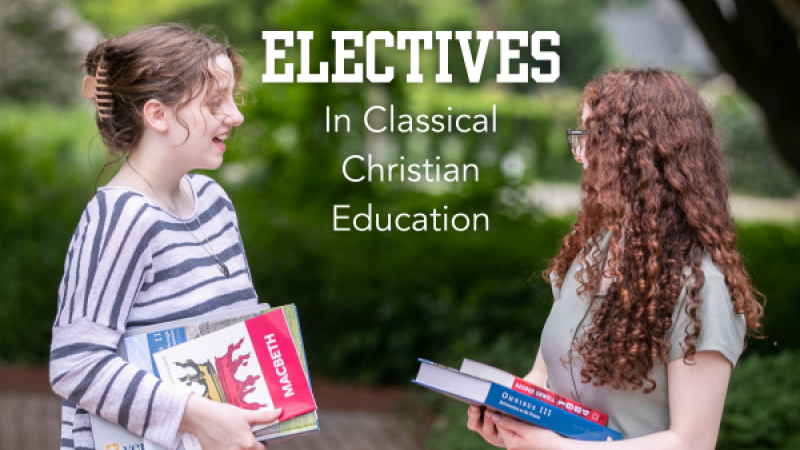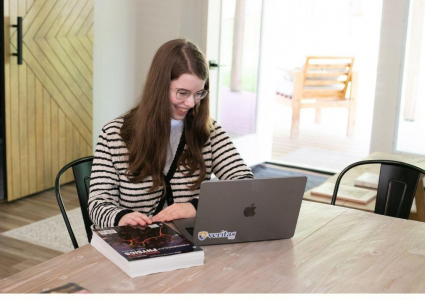The Place of Electives in a Classical Christian Education

There is a debate among classical schools and educators. The debate is hidden in deeply embedded patterns of the living paideia (educational system) of schools: Are children essentially the same, or are they different? Our classes, curriculum, and approach show what we believe about our students.
You might be wondering, but isn’t classical education—especially classical Christian education— rebelling against all sorts of relativism, whether it is found in Montessori openness, Whole Language Reading, or the New Math? Classical education includes the Seven Liberal Arts. Classical Christian education aims for students to become mature humans reflecting Christ Jesus. Shouldn’t that be the same for everyone? One Lord, one faith, one curriculum?
While it’s absolutely true that classical Christian education is always moving toward Christ, toward truth, and toward a vision of full-grown Christian humanity, this truth must be balanced with this awesome fact: God made the Universe diverse and interesting. He provided gifts for the Body of Christ, but they are not the same for everyone. All men and women bear God’s image, but that doesn’t make them identical. God must want it that way!
So, with this recognition that God must remain core, I argue for elective classes for secondary school-aged students. Allowing time to explore unique areas of interest will enable students to practice pursuing personal interests. Often, students learn to love subjects deeply because elective classes are taught by teachers who have special interests in the subject, making them even more passionate about teaching that particular subject.
Electives can allow students to know or even ignite interests and perhaps their calling because electives recognize the kind of diversity that God chose to build into the world.
Be careful about how you use the word “elective”. Too often, the Fine Arts and Music are lumped into the “elective” category. They shouldn’t be. A foundational level of proficiency in and appreciation for the visual arts and music should not be elective. It must be mandatory. In cultural conflict, the team with the best art wins.
In light of these caveats and limitations, let's look at why classical Christian schools should have electives.
Rhetoric-aged students should have electives because it gives them the opportunity to practice learning in unique areas of interest.
Sometimes, students struggle morally, academically, or even spiritually. Older students are going to be learning various disciplines after high school. Some will be doctors, teachers, CPAs, and others will be cellists. Often, they will learn these things in settings where they work individually. Often, students struggling in one area will find they excel in other areas- sometimes in the most unlikely of areas.
Electives at a classical Christian school can be halfway between individual learning and whole-class core-curriculum learning. The teacher can guide the student into a pattern of learning that helps them enjoy the subject matter. Much of our learning as adults is done as individuals. Practicing this kind of enjoyment in a smaller elective class is a good training ground for this sort of love.
Elective classes often allow passionate teachers to walk students through topics and subjects they love.
Because love is as much caught as taught, students in electives classes can get to know their teachers better as they share in the love of a beloved subject. One of my favorite teachers in college loved modern European history. I came into the class wondering why I was taking it. I left transformed. What’s love got to do with it? A lot.
Finally, sometimes elective classes help students find areas of interest that can turn into callings.
I have seen this happen a number of times recently in an Advanced Chemistry elective class. Students in that class, because of the love of their teacher for the subject and because of all of the incredible labs, often come out of the course and pick a major in Chemisty or Chemical Engineering in college. God uses many experiences to call people into areas that eventually become callings. I have seen Him use electives in this manner often.
All students need the Core of a classical education. It shapes them; it molds them; it prepares them. When students are older, however, there is more than just the Core to explore. Classical Christian schools are wise to consider how they might integrate electives for their oldest students into their vision for a classical Christian education.






